When most of us think of cats we probably envisage playful felines climbing trees or stalking the local pigeons. There’s no doubt that cats love the outdoors. The outside is like a giant playground for cats who love to climb, chase and play. But many of us choose to keep our cats indoors and, with the right kind of care, that can be okay too. There are pros and cons to both options and there are many things to consider when deciding whether to let your cat outside or keep them as house cats. Here we discuss some of the main things to think about when choosing whether to allow your own feline to roam outside or keep them indoors.
Should I Let My Cat Outside?

The likelihood is that your cat is going to really enjoy the outdoors. There is a plethora of things for them to discover including trees to climb and wildlife to experience. Cats naturally like to roam and allowing them outdoors will give them a wider space to do just that. Some cats can become anxious if kept indoors, especially if they aren’t given enough things to do, or enough socialisation. Allowing them outdoors can relieve them of stress which can in turn stop them from doing negative things indoors such as scratching furniture. Bored cats can develop a number of other bad habits such as fouling outside of the litter box and marking their territory by spraying. These things are less likely to occur if your cat is allowed to let off steam and enjoy an open space.
What are the main benefits of letting your cat outside?
- More space for their territory - cats are territorial by nature and allowing them outside will give them a bigger space to make their own.
- They can express natural behaviour - cats like to scratch and some like to spray to mark their territory. Whilst this is natural, as owners we often don’t want them doing these things in the house. Letting them outside allows them to scratch in a ‘suitable’ place without damaging the furnishings.
- Interesting environment - the great outdoors is full of all kinds of interesting things that will keep your cat occupied. The constantly changing environment that’s full of smells, textures and tastes will stimulate your cat in a way that won’t happen indoors. This brain stimulation is good for their brain development and will stop them getting bored.
- Exercise - The extra space provided outside will allow your cat to exercise more. They’re likely to climb, run and chase more outside keeping them physically fit.
- Rodent Control - cats have an inbuilt instinct to hunt and chase. It isn’t just about food either as even cats with plenty of food will still stalk their prey. Allowing your cats outdoors can help keep unwanted rodents, such as mice, to a minimum.
What are the risks of letting your cat outside?
- Injuries - this can depend greatly on where you live, but the risk of injury is greatly increased when your cat goes outside. Many cats are injured due to road traffic. This can be due to busy roads in town, but also country roads where your cat may be caught off-guard. Cats can also become injured by other animals outside. Fighting can be reduced by neutering your cat but can still occur when new cats come into their territory.
- Illness - Allowing your cat outside can put them at an increased risk of catching illnesses and diseases. If you do allow your cat outside always ensure they are fully vaccinated.
- Parasites - Any cat, whether indoor or outdoor, can catch parasites such as fleas or ticks, but the risk is greatly increased if they venture outdoors. Make sure you treat your cat to help prevent and treat parasites. Speak to your vet to see what they think is the best way to do this.
- Loss - Cats that go outside can go missing for a number of different reasons. It could be due to injury, getting trapped in a strange building or even theft. Sometimes cats will be taken in by someone mistaking them for a stray. Before letting your cat outside ensure that they are microchipped to help increase the chance of their return if they do go missing.
- Poisons - There are a number of things that can poison your cat including garden chemicals, anti-freeze and slug pellets. Make sure all of your garden chemicals are stored well out of reach of cats and make sure any spillages are always cleaned up thoroughly. If you think your cat may have ingested poison, seek veterinary care immediately.
Ways to help keep your outdoor cat safe
- Collar - let them wear a collar, preferably with some kind of reflective panel for visibility and an ID tag in case they get lost. Make sure it has a safety breakaway buckle in case it gets caught whilst climbing.
- Microchip - all pets should really microchipped in case of loss. A collar can come off, whereas a microchip is always there They’re much more likely to be returned home if they get lost.
- Get them vaccinated - to ward off any unwanted diseases.
- Get them treated for fleas - regularly treat them for fleas and other parasites.
- Get them neutered - you need to reduce the risk of unwanted pregnancies as soon as possible.
- Enclose your garden - if you Iive in a busy town you could consider making your garden as enclosed as possible to deter them from straying any further than the boundary.
Should I keep my cat indoors?

Ideally all cats would be given at least a bit of time to experience the outdoors. However, some cats adapt very well to living an indoor lifestyle, especially if they do so from a young age. Some cats will need to live indoors due to certain medical conditions and some actually prefer living indoors. There are many pedigree breeds, such as Ragdolls, that will benefit from being kept indoors. The key is to give your indoor cat a healthy environment to live in and replicate a cat’s outdoor habit indoors. As long as your cat is given plenty of socialisation, areas to climb and scratch as well things to play with, they will probably lead healthy fulfilled indoor lives.
What are the main benefits of keeping your cat indoors?
- Protected from loss - indoor cats are much less likely to get lost or stolen. Be aware of open windows around the house so they don’t escape!
- Less risk of catching fleas or other parasites - there is still a slight risk they could parasites, but the risk is greatly reduced if they don’t go outdoors.
- Less risk of disease - The reduced contact with other animals means they will be less likely to catch certain diseases and infections.
- Less likely to hunt - Unless you have mice in your house, your cat probably won’t hunt. This means you won’t find ‘presents’ on your doorstep in the mornings!
What are the risks of keeping your cat indoors?
- Risk of boredom - Indoor cats are more likely to grow bored if not given enough things to keep them occupied, which can result in negative behaviours such as spraying, aggression and scratching furniture. It’s important to give your cats plenty to do in the house with a good scratching tree and plenty of toys to keep them stimulated.
- Can become more dependent on routine - A static environment can lead your cat to fear change. They can become sensitive to even slight changes in their routine which can lead to stress.
- Lack of hiding places - if your cat can’t get outside, it may not give them many places to hide from visitors or other pets. Even sociable cats like their own space sometimes. If you do choose to keep your cat indoors make sure they have places that they can retreat to when they want some alone time.
- Houseplants - Just as there are some hazardous plants outdoors there are also some that we keep as houseplants. Be aware of these and keep them out of reach of your cats.
Enhancing your house for an indoor cat
All cats need some indoor stimulation, but house cats need even more than outdoor cats. Here are some top tips for setting up the home for indoor cats:
- Toys - Make sure they have lots of things to play with. A variety of different types of toy will keep their bodies active and their brains working.
- A place to scratch - All cats need to scratch to keep their claws healthy. A scratch post or two around the home will encourage them not to scratch your furniture.
- Places to climb - This could as part of the scratching post if you choose something with platforms and multiple posts for them to explore. Cats like to be high up and giving them a tall scratch post to do this is ideal.
- A place to hide - Many cats will naturally flee from strangers and giving them, some hiding places is the perfect way to do this.
- A quiet place for their litter tray - cats are quite private creatures and will appreciate a bit of privacy when going to the loo. Keep their litter tray in a secluded spot so that they are encouraged to use it. You could consider a covered tray too which will give them even more privacy than an open one.
- Places to roam - indoor cats should have access to a number of rooms that they're allowed to explore. Also think about leaving room on a windowsill for them to sit as they'll enjoy looking out of the window and watching wildlife.
Should your cat be an indoor or an outdoor cat?
This really does come down to the individual pet owner, the cat that they own and the kind of lifestyle that they live. Both indoor and outdoor cats can live happy, healthy lives with the correct care, and there are pros and cons to both lifestyles. Whichever you choose for your cat, make sure you have read through our lists of benefits and risks and choose the right lifestyle for you and your cat. If you’re rehoming a farm cat who has lived outside their whole life, then you’ll probably need to consider continuing with an outdoor life for them. On the other hand, if you are getting a pedigree breed who tend to live more sedate lifestyles and have grown up indoors, then you may wish to continue with that. Heed all the advice and make the correct choice for you. If you want further advice, you can always talk to your vet.









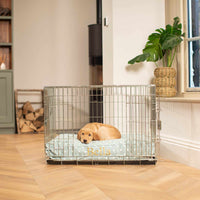






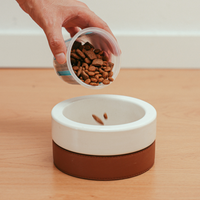














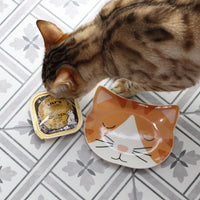


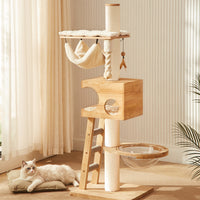
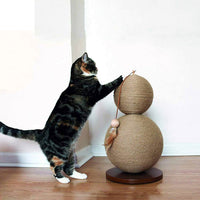



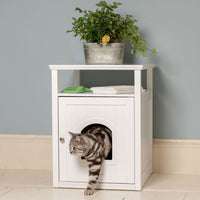

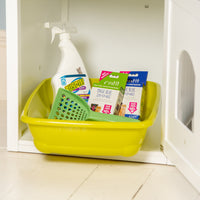
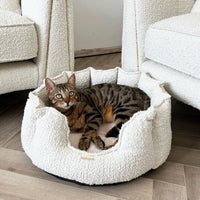

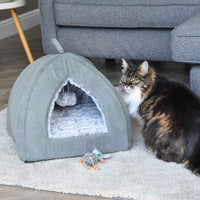








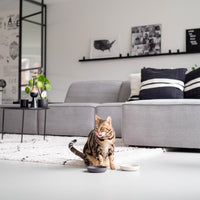





![[color:cream]](http://www.lordsandlabradors.co.uk/cdn/shop/products/little-rebels-maine.jpg?v=1672327626&width=533)
![[color:cappuccino]](http://www.lordsandlabradors.co.uk/cdn/shop/products/Little-Rebels-Palmdale-9.jpg?v=1672324898&width=533)




































